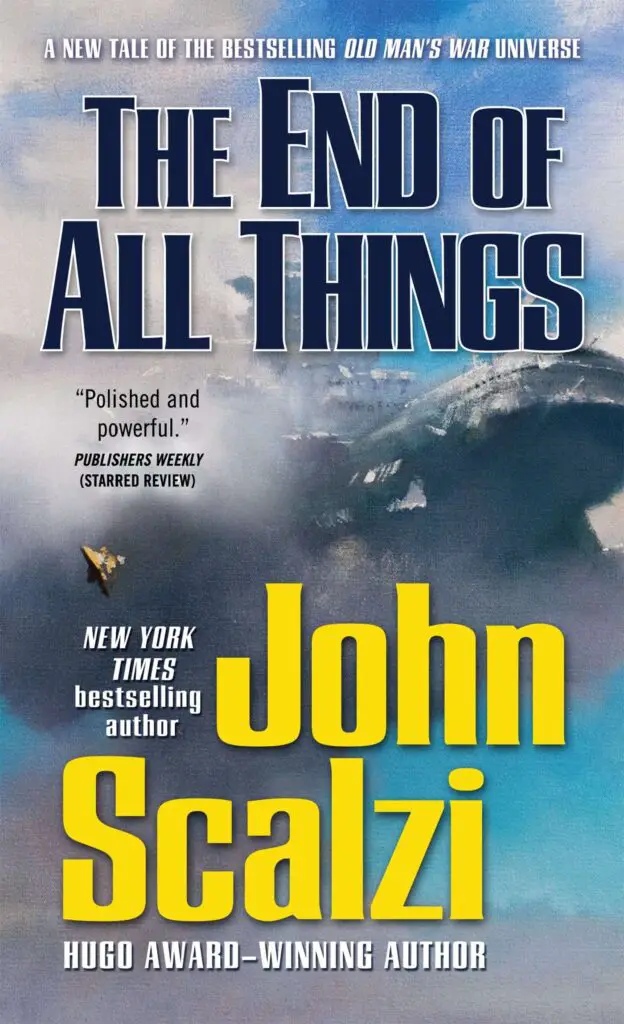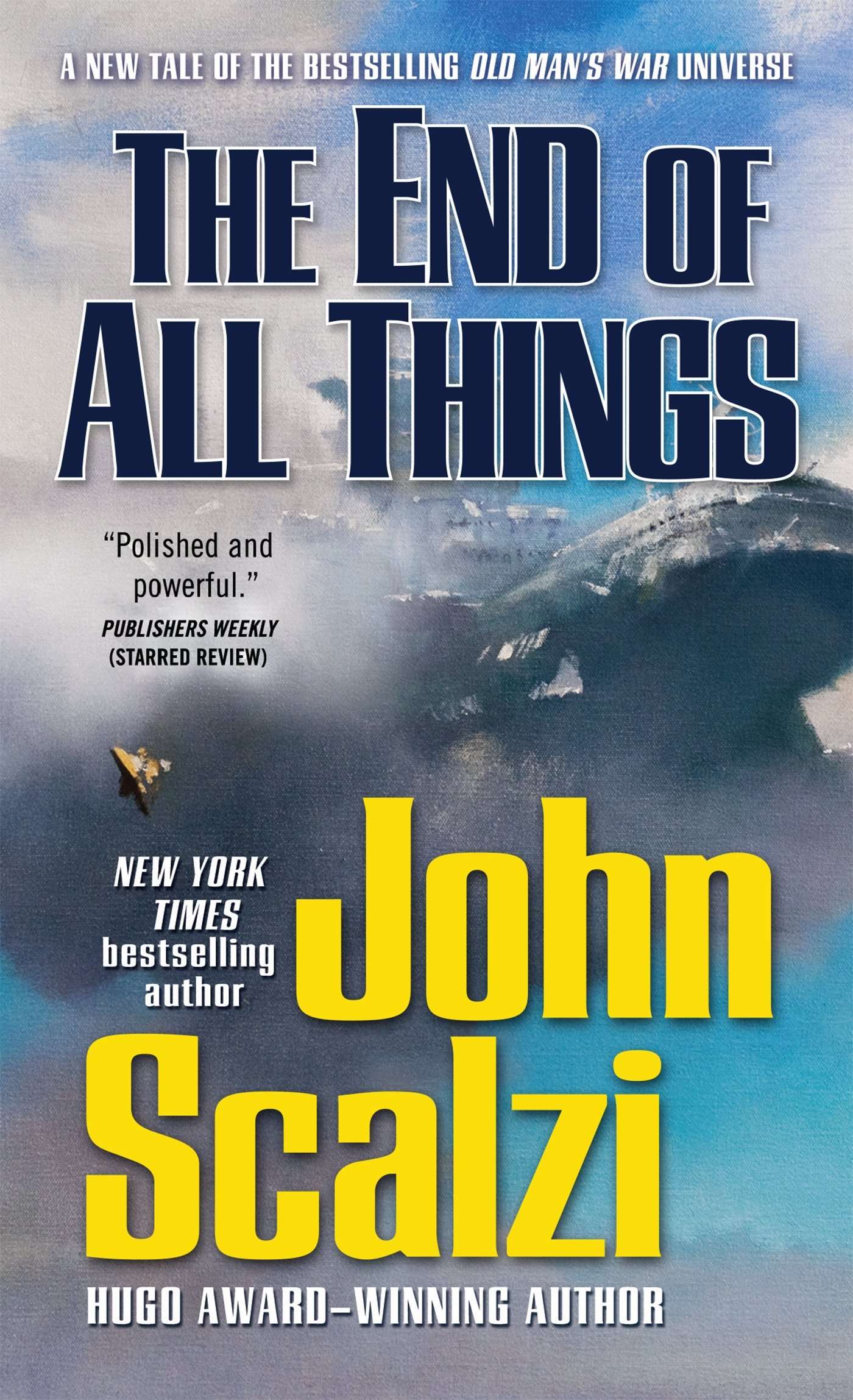The End of All Things, by John Scalzi
Full disclosure: I adore John Scalzi. I enjoy his writing, which I find adroit and entertaining. As a social media persona, I find him quick witted and refreshingly candid. As a person, I find him lovable and genuine.

So it probably is not surprising that I devoured The End of All Things, the sixth book in his Old Man’s War series. As with its immediate predecessor, The Human Division, the book is a hardcopy novelization of a group of novellas, previously released online.
The End of All Things takes place immediately after the actions of The Human Division. Despite (or perhaps because of) diplomatic posturing, the distrust simmering between the galaxy’s two superpowers, the Colonial Union and the Conclave, seems ready to erupt, with one of the major boiling points being how to deal with Earth’s two opposing factions and the animosity that humanity has sown with its cosmic neighbors. A shadowy new movement, known as Equilibrium, has clandestinely positioned itself to exploit the tensions using subterfuge and misdirection. War between the CU and the Conclave seems inevitable, even welcome from some corners, but what will happen when those forces realize they’ve both been played? And will it even matter?
These are huge, sweeping themes, but what John Scalzi does so very well is spin large ideas on a very human level, granting us as readers instant access to the full range of implications. In each novella, we see events unfolding through the eyes of very relatable characters (not all of whom are human), allowing us to fully vest our own selves in the story. There are no long technical explications (although complex technologies exist) nor intricate battles meticulously rendered (although there are battles and other hostilities that are met head-on). Instead we get ideas that seem preposterous – sentient brains in a box piloting ships, septuagenarians rebuilt as soldiers in their twenties, selfless politicians – that we quickly embrace simply because they are faced so pragmatically in the narrative. Often with a bit of sharp humor thrown in for good measure.
This down-to-earth treatment of potential catastrophe allows the intrigue to build – we can’t seem to salvage what appears to be the downfall of any coalition and the disruption of any kind of consensus, but surely there can be alternatives, yes? And with John Scalzi, there always is, but dang, it’s fun seeing how he gets there. Yes, fun. Entertaining. Stimulating. Captivating. Fun.
While The End of All Things may seem like the end of the Old Man’s War series, author Scalzi says that’s not necessarily the case, even though he has no current plans to return to this particular universe. However, if you haven’t jumped into the series, it’s not necessary to read the first five books to enjoy The End of All Things. But! The End of All Things does follow immediately after The Human Division, and revisits many of the characters we met in that earlier novel, so reading that novel first would definitely enhance your reading experience. I, myself read The Human Division first, and fell so in love with those stories that I went back to read Old Man’s War, the first novel in the series, at that point – but haven’t read the middle ones yet. So feel free to navigate the series any way you want.
And you will want, I’m sure. After all – it’s John freakin’ Scalzi. What’s not to love?
— Sharon Browning

